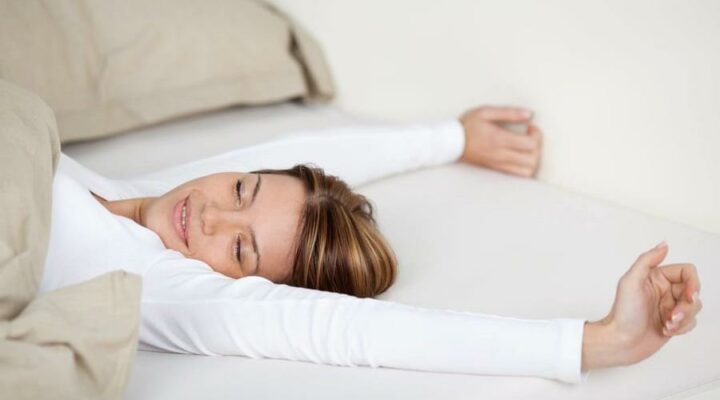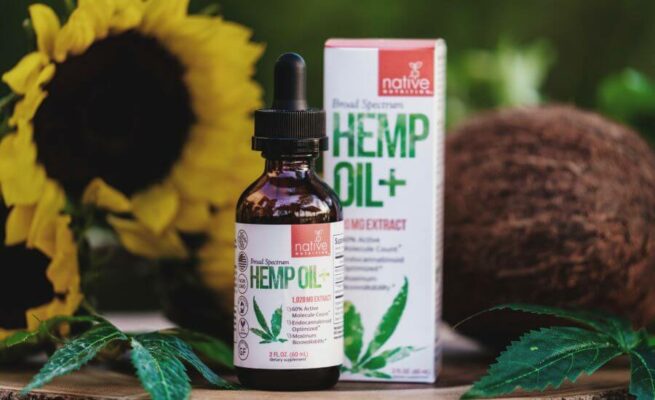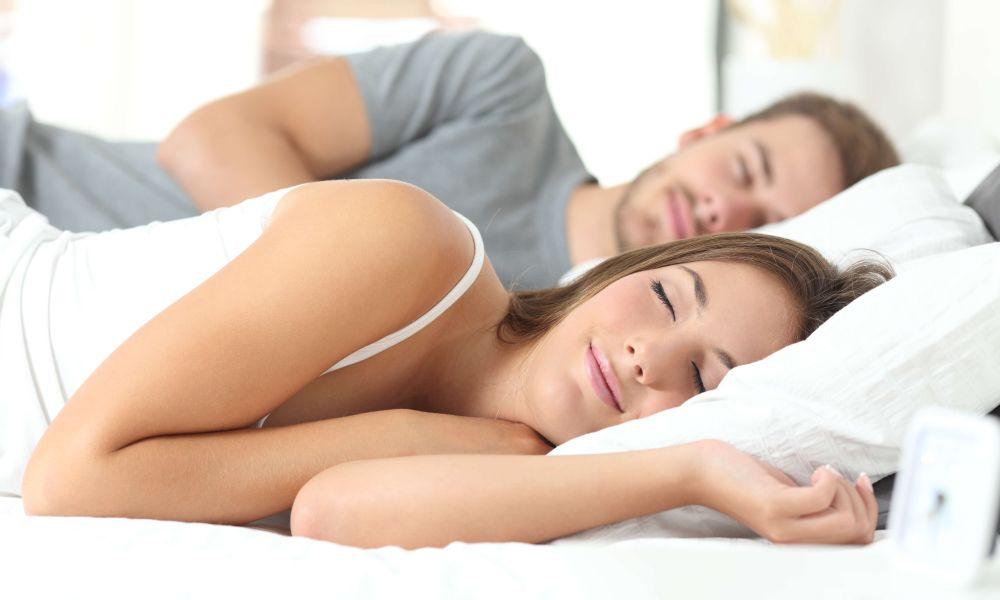General Wellness
Natural sleep aids for Sleep disorders | Insomnia, Best Methods To Try
Find out which is the best natural sleep aid for you to finally catch some Z’s.
Table of contents:
Avoiding sleeping pills and prescription sleep aids.
5 Natural Remedies to Beat Insomnia once and for all.
Are you one of the 60 million Americans who struggle with sleep?
If so, you already know the toll sleepless nights take on your body – mentally, emotionally, and physically.
What you may not realize is how far those effects can reach. Insufficient sleep can cause depression, memory loss, and brain fog. It can even contribute to heart disease, obesity, high blood pressure, and diabetes.
So it’s important to act now to restore healthy sleep patterns.
Why Not Sleeping Pills or Prescription Sleep Aids?

At best, sleeping pills are just a short-term solution. They’re not fixing the systems that are broken and causing insomnia in the first place.
At worst, prescription sleep aids can cause side effects like daytime drowsiness, headaches, digestive issues, dry mouth, trouble thinking clearly, and more.
On top of that, it’s easy for your body to grow dependent on them, and even worse, build up intolerance to them. Before long, you have to take higher and higher doses just to get the same effect.
Still, some people need them. In a few situations, the pros outweigh the cons.
So we’re not here to blow the whistle on prescription sleeping pills.
We’re just offering a more natural approach that doesn’t come with a laundry list of side effects. For most people, a few nature hacks is all they need to catch some Z’s at night.
With that said, let’s look at some of the most effective ways to sleep better naturally.
5 Natural Remedies to Beat Insomnia for Good

1. CBD Oil
You’ve probably heard of CBD and the endocannabinoid system by now. But if you’ve written it off in the past, it’s time to take a closer look.
To date, scientists have discovered over 80 different cannabinoids – each one with its own unique symptom-relieving ability. The two most popular are THC (tetrahydrocannabinol) and CBD (cannabidiol).
THC is the infamous compound in marijuana responsible for the high. CBD, however, is 100% free from THC and does not make you high. In fact, it’s used for just the opposite to ease and calm the body and mind.
Few people realize this, but cannabinoids are not foreign to us. In fact, we produce our own cannabinoids internally. They play a unique role within our endocannabinoid system, helping us achieve a state of homeostasis (aka balance and equilibrium).
As of 2019, the Best CBD oil drops and CBG oil tincture have been shown to interact with receptors in the brain related to the activity of hormones, neurotransmitters, and neurons. As such, CBD has a direct impact on things like our sleep-wake cycles, inflammation processes, and more.
When it comes to sleep specifically, the Best CBD works on 3 fronts:
- Anxiety: CBD stimulates the production of hormones involved in cognitive function and mood regulation. Due to its interaction with related receptors like serotonin and GABA, it helps eliminate racing thoughts and induce a sense of calm. Several studies have proven its effects for general anxiety as well as obsessive-compulsive disorders, PTSD, and social anxiety disorders.
- Pain Management: Sometimes we don’t even notice pain until it’s gone. For instance, have you ever climbed into bed and felt your muscles relax? It was only then that you realized you had been tensing up all day. CBD has the unique ability to cut off pain signals by “turning off” pain-related receptors. As such, the sensation of pain diminishes, muscle fibers relax, and you enjoy a general sense of rest and relaxation.
- Regulating Sleep Patterns: We mentioned earlier how cannabinoids work to achieve homeostasis. In light of that, many of us are deficient in our body’s primary sleep hormone, melatonin. We spend our days indoors under artificial light, then watch or read from blue-light screens at night (think TVs, cell phones, laptops). All of this affects the amount of melatonin produced. As the Best CBD oil works to “normalize” body systems, it can naturally increase melatonin levels in those who are deficient.
Interested in learning more? Check out our Premium THC-Free CBD Oil here.

2. Magnesium
Magnesium is an important, yet often overlooked mineral that helps keep your heart beating right, your bones strong, your immune system up and running, and so much more.
Good news in the sleep department, magnesium also helps calm the mind and body thanks to its ability to increase GABA levels in the brain (the neurotransmitter responsible for calming nerve cells).
It’s well known that magnesium deficiency causes symptoms such as insomnia, anxiety, muscle cramps, and irritability – all of which make it hard to sleep.
Magnesium is also involved in regulating melatonin production, helping to prevent deficiency.
One 2012 study showed that taking 500mg of magnesium per day for 8 weeks not only improved overall sleep quality but also increased blood levels of melatonin.
You might consider adding magnesium-rich foods to your diet. These include:
- Almonds
- Seeds
- Dark leafy greens
- Legumes
- Whole grains
3. Nix the Lights & Ditch the Tech
This one involves a minor lifestyle change but is one of the best steps you can take to naturally improve your sleep quality.
Melatonin production is triggered by an area in the brain connected to your retina, so light is the number one factor that influences it.
The best way to regulate your melatonin levels is to get your eyes on natural light first thing in the morning (obviously not looking directly at the sun!). On the flip side, it’s equally important to turn off or dim the lights at the same time every night.
And I know it’s hard, but that means not looking at bright screens at night like cell phones, computers, TVs. These devices emit blue light, which has been shown in studies to actually disrupt melatonin production. If you can’t power down completely, wear a pair of blue light-blocking glasses at night.
With all this talk of melatonin, you might be wondering why not just supplement with melatonin?
That’s certainly an option, but some doctors suggest the body can grow dependent on supplemental melatonin. Instead, it’s best to help your body better regulate its own production by removing the sources that disrupt it.
4. Valerian Root
An herb native to Europe and Asia, valerian root is now one of America’s favorite herbs for sleep. In fact, it even bears the nickname “Nature’s Valium.”
Like magnesium, valerian root helps increase GABA levels in the brain, helping to calm nerve cells and induce a sense of relaxation.
It also contains compounds like valerenic acid that work to disrupt the breakdown of GABA, allowing it to stick around and lend its calming effects even longer. To put that in perspective, this is exactly what medicines like Xanax and Valium do.
In addition, valerian root also contains certain antioxidants like linarin and hesperidin that have been shown to have sedative-like effects. Researchers believe this is due to their ability to prevent excessive activity in the brain’s amygdala – the area that processes how we respond to stress.
5. Lavender and Other Essential Oils
We can’t talk sleep remedies without mentioning lavender. Even if you’re not into essential oils, you’ve probably heard about its sleepy-time benefits.
More than anecdotal, several studies have proven its effects, showing that just inhaling the scent of lavender about half an hour before bed can improve sleep quality.
It works by calming the nervous system and putting an end to racing thoughts. It also helps lower heart rate, blood pressure and temperature – all of which happens as we transition into sleep.
Lavender isn’t the only sleep inducer though. Some other essential oils lauded for their ability to fight insomnia include:
- Roman chamomile
- Clary sage
- Bergamot
To enjoy their benefits for sleep, you can diffuse essential oils with an air diffuser or apply topically to your chest, hands, or feet (after properly diluting, of course).
Summary
Sleep issues are so common, but they don’t have to be your new normal. There are steps you can take to sleep better, including natural remedies like CBD oil, valerian root, magnesium, and more.
We encourage you to take action today before unhealthy sleep patterns develop. If they already have, it’s not too late!
Research the 5 remedies discussed here and see what will work best for you.

